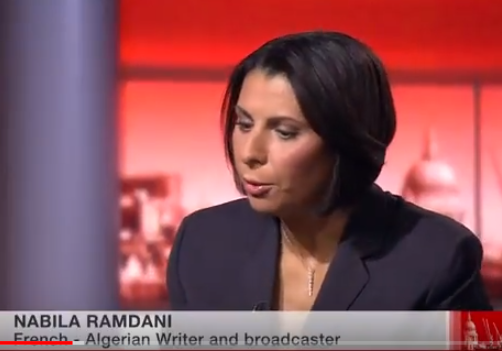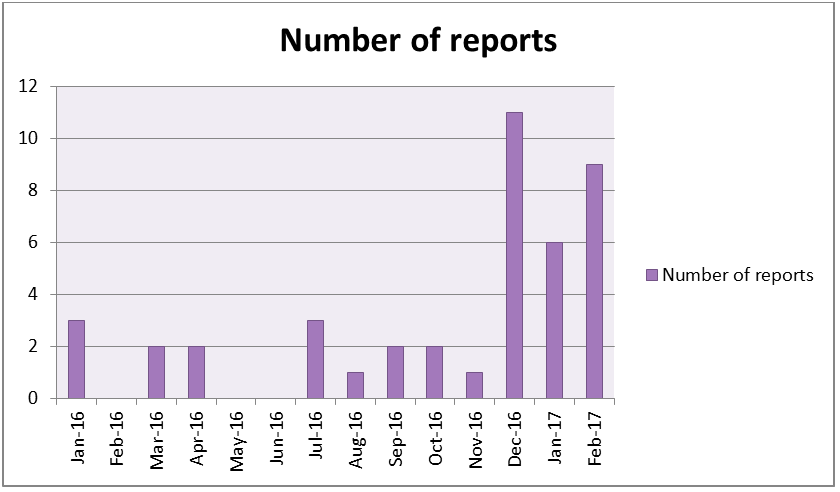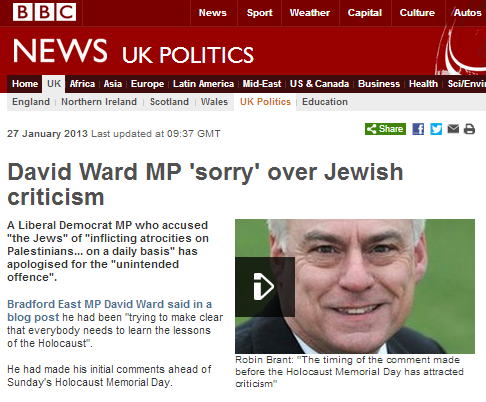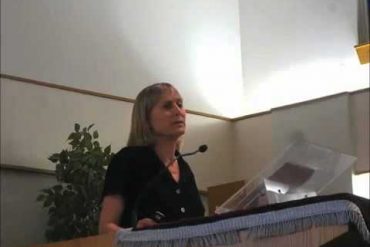Over the last few days, a report broadcast on Channel 2’s investigative journalism programme ‘Uvda’ has attracted a lot of attention in Israel. David Collier has written a concise summary of the story:
“A few days ago, an Israeli investigative TV show (UVDA – ‘fact’) ran an expose that involved an Israeli infiltrating Ta’ayush, a NGO that promotes itself as ‘a grassroots movement of Arabs and Jews working to break down the walls of racism and segregation.’ The Israeli also encountered Nasser Nawajah, a member of B’tselem. These two NGO’s are cited as leading ‘human rights organisations’ whose self-stated purpose is highlighting alleged human rights abuse. Very few, if any, of the organised tours that set out to sell ‘the brutal Israel’ narrative do not involve engaging one or both of these movements.
The operation itself was simple, and involved riding with Ezra Nawi, an Israeli Jew and well known ‘peace activist’ from Ta’ayush, as he went about his daily business. The Israeli, using the pseudonym ‘Arik’, went on to capture on camera that these activists, senior members of B’tselem and Ta’ayush, have been informing on Arabs who wish to sell land to Jews. Nawi was recorded boasting that the Palestinian security forces would torture and execute those Palestinian land brokers and ‘take care’ of the Palestinian families willing to sell their land.”
A clip from the programme with English language sub-titles can be found here.
Given the BBC’s penchant for promoting domestic Israeli stories it may at first glance seem rather curious to see that it has avoided reporting this one. However, this story is not about a supermodel, a corrupt Rabbi or a ‘right-wing’ politician embroiled in scandal: it is one which is much closer to home for the corporation which regularly produces content based on material provided by inadequately presented Israeli NGOs from one particular side of the political spectrum.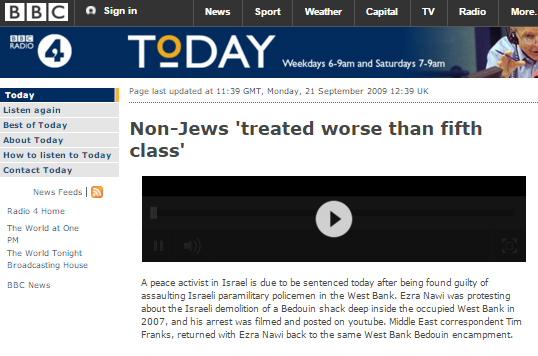
Both the main actors in this story have appeared in BBC reports. In September 2009 Radio 4’s ‘Today’ programme promoted (and still does in an item which remains accessible on the internet) assorted allegations from Ezra Nawi – described by the BBC’s Tim Franks as a “peace activist” – including the headlined claim that “Non-Jews [are] ‘treated worse than fifth class'”.
In July 2015 audio and written reports produced by the BBC Jerusalem bureau’s Yolande Knell relied heavily on input from Nasser Nawajah whilst failing to inform audiences of his day job with B’tselem (the Israeli NGO most promoted by the BBC in 2014 and 2015) and that NGO’s connection to the subject matter of her story.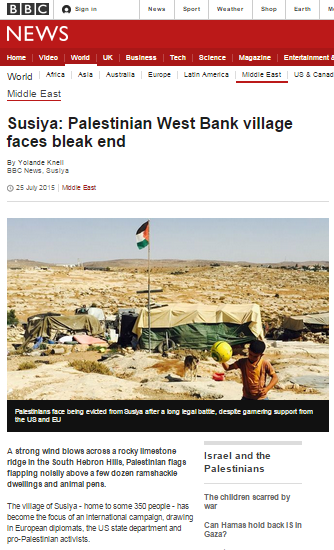
BBC Watch has frequently documented the BBC’s failure to comply with its own editorial guidelines on impartiality by clarifying to audiences the agendas of the NGOs it quotes and promotes. As this story shows, that failure is not only important from the point of view of the failure to supply relevant information which would enable audiences to put the contributions to BBC content made by NGOs and their representatives into its correct context.
Were it standard BBC practice to comply with those editorial guidelines, its staff would have to engage in close examination of the political agendas of NGOs and their funders, ditching the apparently existing assumption that any organization labelling itself a ‘human rights group’ and any individual promoting him or herself as a ‘peace activist’ is automatically worthy of that title and the accompanying ‘halo effect’.
That would mean that BBC journalists would be better positioned to assess the relevance and reliability of material provided by NGOs and their staff, as well as the motivations behind the content provided. The gain would not only be to BBC audiences, but also to the reputation of the media organization which claims to provide them with accurate and impartial reporting.
Related Articles:
Promoted and quoted: the BBC’s preferred NGO contributors in 2015
Guardian once praised Israeli activist who ‘helps kill Palestinians selling land to Jews’ (UK Media Watch)

